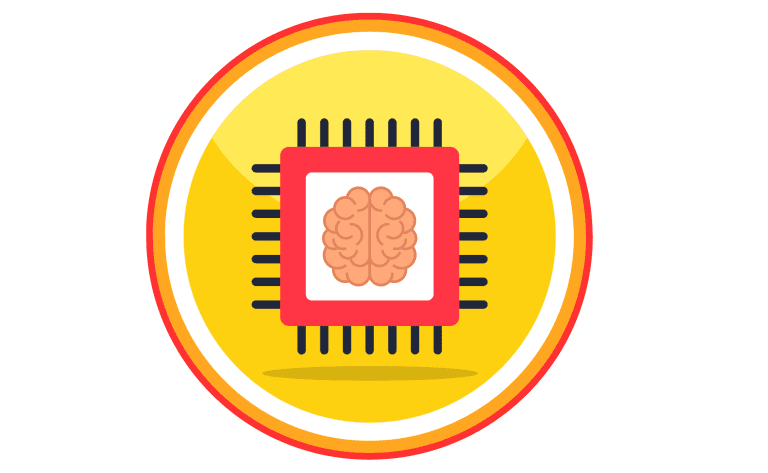Human resources (HR) serves as the backbone of any organization. They ensure that the right talent is hired, nurtured, and retained. The HR landscape is undergoing a considerable shift thanks to artificial intelligence (AI). According to a report, companies have started applying AI to improve HR decisions.
Image taken from the Society of Human Resources Management
This integration of AI is not only enhancing efficiency but is also paving the way for a smarter, more agile workforce.
The Evolution of HR: From Paper to Digital
Traditional HR methods, often manual and time-consuming, have limitations such as human error, bias, and inefficiency. These shortcomings have paved the way for AI technologies to bring about transformative changes in HR management.
The move from paper to digital has expedited various HR tasks. It has also introduced levels of accuracy and fairness that were previously challenging to achieve. For example, machine learning algorithms can analyze performance metrics impartially. HR professionals can reduce instances of bias in employee evaluations.
Moreover, the digitization of HR processes makes it easier to collect and analyze data. It allows for continuous improvement and more strategic decision-making in talent management.
Understanding AI and Its Role in HR Management
Let’s delve into how AI redefines the HR landscape, from recruitment to employee engagement.
Finding the right fit
AI algorithms can sift through thousands of resumes in a fraction of the time it would take a human. They have the power to match candidates with job descriptions more accurately than ever before. A report found that 92 percent of HR leaders have plans to implement AI for their HR needs.
According to a study, AI-driven screening can increase the quality of hires.
Besides general recruitment, AI can significantly improve niche hiring. For example, those looking to hire for the renewable energy sector can leverage systems that scan for target-specific skill sets.
Increasing employee engagement and retention
AI helps in unbiased monitoring of employee performance and engagement. With the cost of a new hire estimated to be around $4,700, maintaining employee engagement is not just a luxury but a necessity.
Several companies have already employed the following to increase employee engagement and retention:
- AI chatbots for employee queries: Traditional methods like email or help desks often involve waiting periods, which can be frustrating for employees who need immediate assistance. AI chatbots, on the other hand, are available 24/7 and can provide instant responses to a variety of questions. These chatbots, powered by natural language processing (NLP) algorithms, enable them to respond to queries in a conversational manner. Additionally, they can handle multiple queries simultaneously, thereby streamlining communication and making HR departments more efficient.
- AI-driven employee satisfaction surveys: Conventional employee satisfaction surveys are often lengthy and yield low response rates. AI-driven surveys, however, leverage machine learning algorithms to analyze responses in real time and adapt the questions accordingly. This makes the survey experience more interactive and engaging for the employee. They can also analyze text inputs, sentiment, and patterns over time, providing a multi-dimensional view of employee satisfaction. This level of data granularity enables HR professionals to pinpoint specific areas for improvement.
- Personalized training programs: AI-powered training programs offer a tailored learning experience, as opposed to the “one-size-fits-all” approach of traditional training modules. AI algorithms analyze an employee’s performance data, learning pace, and even preferred training modalities to create a customized training pathway. The AI can adjust the training content dynamically based on the employee’s progress and feedback. This personalization not only makes the training more relevant but also increases engagement and retention of material.
Streamlining onboarding
AI simplifies the onboarding process by offering scalable and personalized experiences, reducing the time and resources spent on manual tasks. For instance, AI-driven platforms can guide new hires through orientation modules tailored to their specific roles. This way, they can have a better understanding of their responsibilities and the company culture.
Since HR staff can automate the documentation and initial training process, they have more time to focus on higher-value activities. They can develop relationships and plan strategies to make the onboarding journey more meaningful and engaging for new employees.
Managing payroll and benefits
AI automates complex calculations and ensures tax compliance, cutting human review time by 50 percent. Companies are also leveraging AI to customize employee benefits, enhancing job satisfaction.
Beyond just payroll and primary benefits, AI systems can suggest highly personalized perks. Using employee data, they can recommend flexible work hours, specialized training courses, or health and wellness programs. This level of personalization not only promotes a positive work environment but also significantly contributes to employee retention.
Humanizing the HR Process
While AI offers numerous advantages, HR professionals must balance automation with human judgment. Regulatory frameworks like GDPR also govern the ethical use of AI in HR.
HR departments must be transparent about how they use AI algorithms. This especially applies when it comes to sensitive tasks like employee evaluations or data collection.
Moreover, incorporating human oversight in AI decisions can provide the empathy and ethical considerations machines lack.
How Recruitment Will Change With AI in HR
AI’s impact on recruitment is expected to extend beyond the initial hiring process. One notable area of influence is the facilitation and management of remote work.
AI algorithms can monitor productivity and work patterns in real time. They can help organizations understand how to best support remote teams and adapt their recruitment strategies for a distributed workforce.
As AI-driven wellness programs gain traction, we can anticipate a heightened focus on employee well-being in the recruitment stage itself. Candidates may soon find wellness offerings as a standard part of job descriptions. In fact, it’s now a growing trend aimed to attract those who value work-life balance.
Furthermore, AI’s capability to analyze large data sets can help HR professionals identify the elements of organizational culture. They can use AI to determine which are most appreciated or need improvement. HR staff can use this information to attract candidates who are not only skilled but also a cultural fit for the organization.
With the evolution of AI, its applications in HR are likely to become more sophisticated. It’s no longer surprising to see them alter the landscape of recruitment that prioritizes efficiency, employee well-being, and a harmonious workplace.
Despite all these advancements, one thing is for sure— the human element of HR will remain.
Prepare Your HR for the AI Revolution
As we’ve explored, AI is not just an optional tool but a strategic asset for modern HR. Organizations should consider employee training and change management for successful AI adoption.
References:
- https://www.linkedin.com/pulse/how-artificial-intelligence-shaping-new-era-human-resources-vteif
- https://www.businessnewsdaily.com/how-ai-is-changing-hr
- https://www.talentlms.com/blog/embracing-ai-in-hr/
- https://metricasolutions.com/ai-in-hr-5-ways-ai-is-revolutionizing-human-resources/
- https://www.pwc.com/gx/en/issues/data-and-analytics/publications/artificial-intelligence-study.html
- https://www.researchgate.net/publication/367678407_THE_SYNERGIC_EFFECT_OF_GAMIFICATION_AND_ARTIFICIAL_INTELLIGENCE_IN_THE_PROCESS_OF_RECRUITING_AND_SELECTING_CANDIDATES
Image by Campaign Creators on Unsplash
HR Future Staff Writer



























